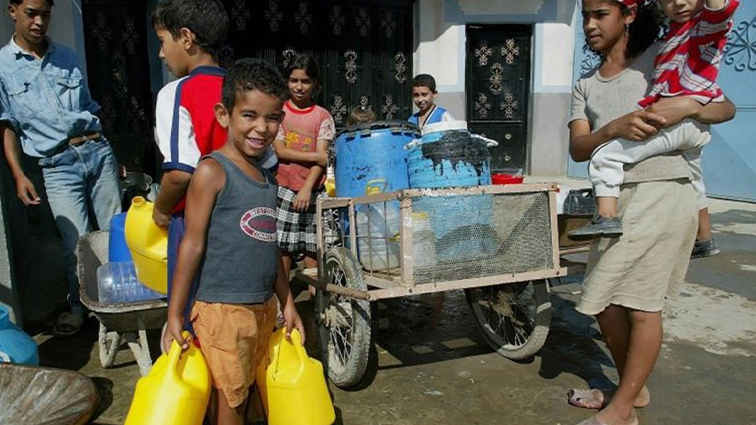The Algerian government is examining an urgent plan to confront the scarcity of drinking water in a number of regions of the country with the aim of avoiding other popular protests such as those witnessed in Tiaret Governorate on the days of Eid al-Adha.
The Presidency of the Government held a meeting, led by Prime Minister Nadhir Arabawi, to discuss the measures taken to provide the population with potable water, within a special program to alleviate water shortages and achieve sustainability in water provision.
The Minister of Water Resources, Taha Darbal, explained, during a visit to Tiaret Governorate, that 27 billion dinars (about 200 million dollars) have been allocated for urgent projects to provide water in the affected areas.
Darbal announced the launch of a new program to reduce pressure on water, with the possibility of involving farmers in the future, pointing to a project to supply the city of Tiaret with an additional 10,000 cubic liters per day, increasing the amount distributed to 34,000 cubic metres.
The Minister pledged another project related to water, which will be launched the day after tomorrow, Sunday, enabling 11 municipalities in Tiaret and the new mandate of Ksar el-Shallala to be supplied with drinking water from the water basin called “Jermaya.”
The Ministry itself announced, on Thursday, the installation of a “vigilance and follow-up cell,” consisting of cadres affiliated with it, charged with “ensuring the good functioning of the public water service, across the entire national territory.”
Darbal stated in a press conference last week that state governors had received correspondence to communicate with state water resources directors to immediately begin implementing the projects, which include digging wells and preparing storage facilities, with implementation periods not exceeding four months.
Member of Parliament, Beljilali Ahmed, indicated that the elected representatives of Tiaret Governorate had informed the government since late 2021 of the existence of an expected water crisis, stressing that the government was aware of the problem but did not take the initiative to solve it in a timely manner.
Ahmed added that the protests witnessed an exaggerated closure of roads, which prevented bottled water tankers from reaching reservoirs in some areas.
Despite complaints and warnings, local authorities and the government face major challenges in dealing with the water crisis and meeting the needs of citizens, amid increasing popular pressure and demands for quick and effective solutions.
Report reveals 30% of food waste in Algeria
